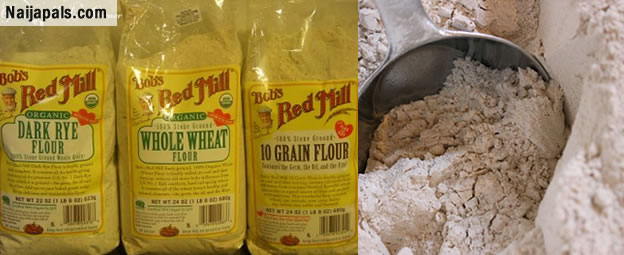INCREASED IMPORT DUTY ON WHEAT GRAINS to 20% AND FLOUR TO 100%: NIGERIANS TO PAY MORE FOR BREAD, PASTA, NOODLES, and BISCUIT OTHER ALLIED PRODUCTS
There is no doubt that this will bring about another phase of untold hardship and aggravated suffering on the already over-burdened Nigerian populace who are just adjusting to realities of the January hike in prices of Petrol warranted by the aborted outright removal of fuel subsidy.
With the increment of the import duty on Wheat as contained in the 2012 Appropriation Bill that was recently presented the average Nigerian is definitely in for a new high price regime for staple food items such as Bread, Spaghetti, Noodles, Pastries and allied product made from wheat flour.
The Government explained that there was no way the country could experience the desired growth in the face of unbridled importation of consumer items and specifically stated that jacking up of the duties was intended to challenge Nigerian farmers on the need to work harder so that Nigeria can become sufficient in food production.
The reason posted for the increase in the duties on these commodities was to promote the usage of Cassava flour which is locally produced. According to the government, this will lead to a marginal growth in the country’s Gross Domestic Product (GDP) and save the country some earnings by reducing importation.
The Government explained that there was no way the country could experience the desired growth in the face of unbridled importation of consumer items and specifically stated that jacking up of the duties was intended to challenge Nigerian farmers on the need to work harder so that Nigeria can become sufficient in food production.
“It is common wisdom that the best way we can grow our economy and create jobs for our people is for us to patronise Nigerian made goods. This is why we are introducing enabling policies to drive this process”
Impact on Wheat Imports
The GON has consistently stated that the primary goal of the new cassava policy is to cut wheat imports by 40% by 2015 to conserve foreign exchange earnings and increase employment. The GON estimates wheat imports to be worth N635 billion (about $4.2bn) in 2011. These figures, even if they include cost, freight, insurance and duty, are overstated to demonstrate that wheat imports hurt Nigeria’s foreign exchange earnings and worsen the rate of unemployment. In actuality, no more than $1.8 billion is spent on wheat imports annually using the same cost, freight, insurance and duty schedule. Successful implementation of this policy will result in a significant reduction in Nigeria’s wheat imports. In addition, the attendant increase in the price of the composite flour and consumer preferences could reduce imports further by an unknown degree as consumers may balk at “cassava bread” products. The US has a dominant share of 85-90 percent of all wheat exports to Nigeria.
Read more
http://bakare-soyinka.blogspot.com 
